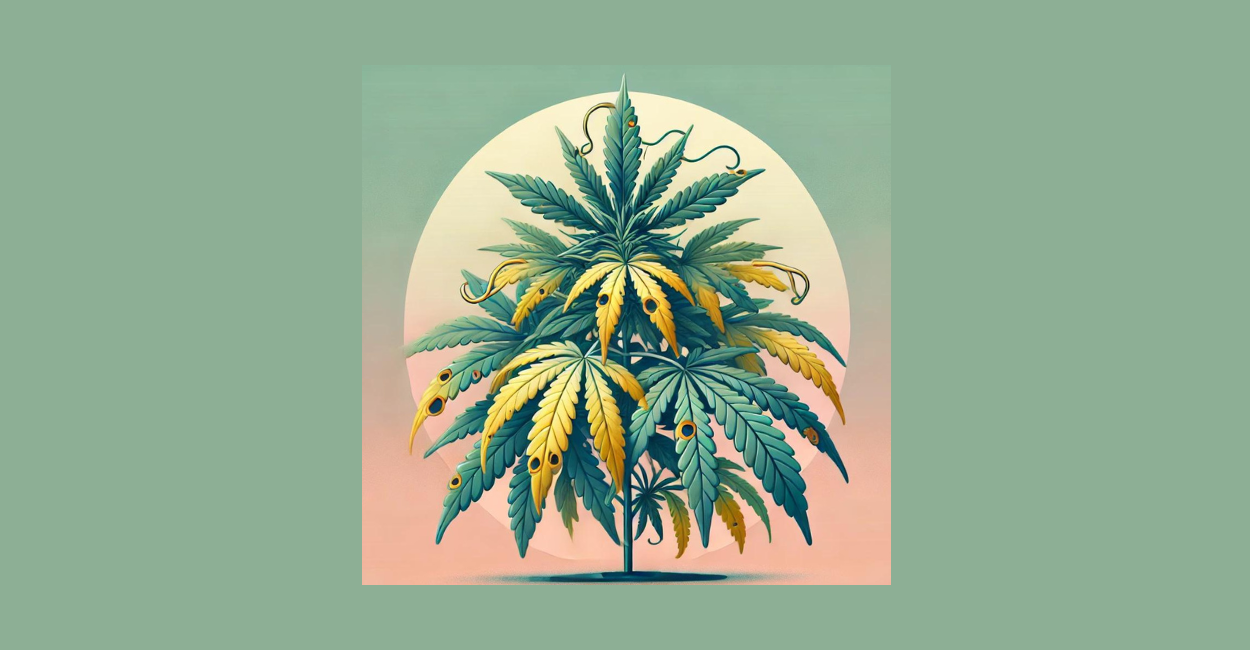Struggling with lackluster growth and weak plants? You might be dealing with potassium deficiency in cannabis. This article will guide you through the symptoms, causes, and remedies to tackle potassium deficiency effectively. Let's dive into the world of potassium and ensure your cannabis plants thrive with vigor and vitality!
Table of Contents
The Role of Potassium
Potassium is a vital macronutrient that plays a crucial role in various physiological processes in cannabis plants. It activates enzymes, regulates water uptake, and supports carbohydrate metabolism. Our experience has shown that potassium is especially important during the flowering phase, as it contributes to the development of strong stems and root systems.
Signs and Symptoms
The symptoms of potassium deficiency are usually first noticeable on the leaves. The most prominent signs include:
- Leaf Symptoms: Yellowing or chlorosis at the leaf edges and between the veins, starting with the lower leaves.
- Leaf Curling: Leaves may curl or become wavy, often accompanied by a brittle texture.
- Necrosis and Browning: Advanced potassium deficiency leads to necrosis at the leaf edges, turning them brown.
- Reduced Flower and Fruit Development: Smaller buds and reduced overall yield are common outcomes.
- Weak Stems: Potassium helps maintain plant turgor by strengthening cell walls and regulating fluid dynamics within the cells. In deficiency, stems and branches wilt.
Causes of Potassium Deficiency in Cannabis Cultivation
There are several causes of potassium deficiency in cannabis plants:
- Unbalanced pH Levels: Potassium uptake is affected by the soil's pH level. The optimal range is between 6.0 and 7.0.
- Poor Soil Quality: Soils lacking organic matter or with poor structure can have limited potassium availability.
- Imbalances with Other Nutrients: Excessive calcium or magnesium can impede potassium uptake.
- Overwatering: Can lead to potassium leaching from the soil.
- High Temperatures: Increase the transpiration rate and potassium demand.
How to Treat Potassium Deficiency in Cannabis Plants
Treating potassium deficiency requires targeted measures:
- pH Adjustment: Monitor and adjust the pH of the growing medium to the optimal range of 6.0 to 7.0.
- Organic Amendments: Incorporate compost or well-rotted manure to enrich the soil with potassium.
- Balanced Fertilization: Use fertilizers with an appropriate N-P-K ratio, ideally containing 1-2% potassium for regular use.
- Avoid Overwatering: Implement proper watering practices to prevent potassium leaching.
- Supplemental Potassium: In cases of severe deficiency, supplement with potassium through fertilizers or nutrient solutions, aiming for a concentration of 20-40 ppm.
How to Prevent Potassium Deficiency in Cannabis Cultivation
Prevention is better than cure. Here are some tips to avoid potassium deficiency:
- Improve Soil Biology: Promote a healthy and diverse microbial population in the soil.
- Refine Fertilization Plan: Ensure the correct amount of nutrients is applied at the right time.
- Regular pH Monitoring: Regularly check soil pH to detect and correct fluctuations early.
- Make Your Own Compost: Use homemade compost as a high-quality, cost-effective potassium source.
- No-Dig Method: Avoid soil compaction through gentle cultivation methods.
- Irrigation Management: Ensure the soil remains adequately moist to promote nutrient uptake.
Potassium: An Essential Mineral
Potassium plays a central role in plant growth and is indispensable from seedling to flowering. Adequate potassium levels promote plant health and optimize yields. By recognizing and effectively treating potassium deficiency early, we can ensure our cannabis plants reach their full potential.
Important Notice:
Ensuring adequate potassium supply for your cannabis plants is crucial for their health and productivity. If you observe symptoms of potassium deficiency such as yellowing leaf edges or weak growth, you should adjust your nutrient program. Adding potassium-rich nutrients or supplements can help address the deficiency. Always check the pH levels of your soil or growing medium, as an incorrect pH can inhibit potassium uptake. For more information and suitable products to remedy nutrient deficiencies, visit our product category for Fertilizer - potassium nutrients.
Conclusion:
Potassium deficiency can significantly impact the growth and yields of cannabis plants. By early detection of symptoms and targeted measures for treatment and prevention, we can ensure that our plants remain healthy and productive. Our experience has shown that careful soil management and regular pH monitoring are crucial to avoiding potassium deficiency.
Disclaimer
This website's content is for informational use only and should not be considered medical or legal advice. Always consult a healthcare professional for health-related issues. Be aware of local regulations regarding cannabis cultivation. We are not liable for any actions taken based on this information.

